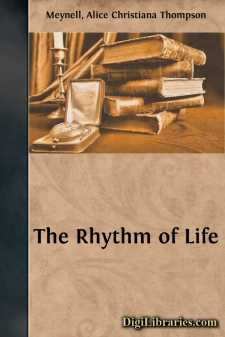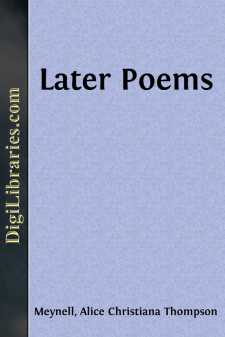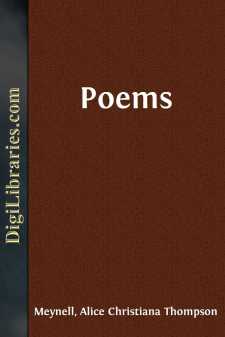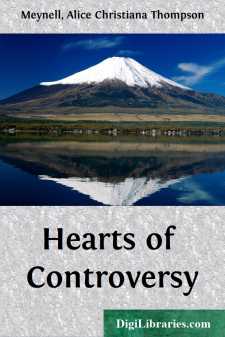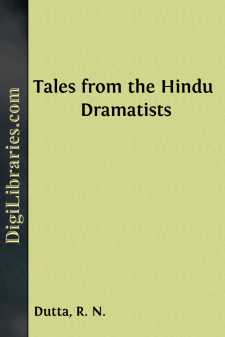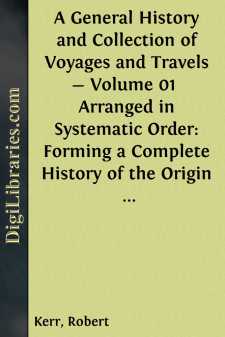Categories
- Antiques & Collectibles 13
- Architecture 36
- Art 48
- Bibles 22
- Biography & Autobiography 813
- Body, Mind & Spirit 142
- Business & Economics 28
- Children's Books 16
- Children's Fiction 13
- Computers 4
- Cooking 94
- Crafts & Hobbies 4
- Drama 346
- Education 46
- Family & Relationships 57
- Fiction 11829
- Games 19
- Gardening 17
- Health & Fitness 34
- History 1377
- House & Home 1
- Humor 147
- Juvenile Fiction 1873
- Juvenile Nonfiction 202
- Language Arts & Disciplines 88
- Law 16
- Literary Collections 686
- Literary Criticism 179
- Mathematics 13
- Medical 41
- Music 40
- Nature 179
- Non-Classifiable 1768
- Performing Arts 7
- Periodicals 1453
- Philosophy 64
- Photography 2
- Poetry 896
- Political Science 203
- Psychology 42
- Reference 154
- Religion 513
- Science 126
- Self-Help 84
- Social Science 81
- Sports & Recreation 34
- Study Aids 3
- Technology & Engineering 59
- Transportation 23
- Travel 463
- True Crime 29
The Rhythm of Life
Categories:
Description:
Excerpt
THE RHYTHM OF LIFE
If life is not always poetical, it is at least metrical. Periodicity rules over the mental experience of man, according to the path of the orbit of his thoughts. Distances are not gauged, ellipses not measured, velocities not ascertained, times not known. Nevertheless, the recurrence is sure. What the mind suffered last week, or last year, it does not suffer now; but it will suffer again next week or next year. Happiness is not a matter of events; it depends upon the tides of the mind. Disease is metrical, closing in at shorter and shorter periods towards death, sweeping abroad at longer and longer intervals towards recovery. Sorrow for one cause was intolerable yesterday, and will be intolerable tomorrow; today it is easy to bear, but the cause has not passed. Even the burden of a spiritual distress unsolved is bound to leave the heart to a temporary peace; and remorse itself does not remain—it returns. Gaiety takes us by a dear surprise. If we had made a course of notes of its visits, we might have been on the watch, and would have had an expectation instead of a discovery. No one makes such observations; in all the diaries of students of the interior world, there have never come to light the records of the Kepler of such cycles. But Thomas ÐÑ Kempis knew of the recurrences, if he did not measure them. In his cell alone with the elements—‘What wouldst thou more than these? for out of these were all things made’—he learnt the stay to be found in the depth of the hour of bitterness, and the remembrance that restrains the soul at the coming of the moment of delight, giving it a more conscious welcome, but presaging for it an inexorable flight. And ‘rarely, rarely comest thou,’ sighed Shelley, not to Delight merely, but to the Spirit of Delight. Delight can be compelled beforehand, called, and constrained to our service—Ariel can be bound to a daily task; but such artificial violence throws life out of metre, and it is not the spirit that is thus compelled. That flits upon an orbit elliptically or parabolically or hyperbolically curved, keeping no man knows what trysts with Time.
It seems fit that Shelley and the author of the Imitation should both have been keen and simple enough to perceive these flights, and to guess at the order of this periodicity. Both souls were in close touch with the spirits of their several worlds, and no deliberate human rules, no infractions of the liberty and law of the universal movement, kept from them the knowledge of recurrences. Eppur si muove. They knew that presence does not exist without absence; they knew that what is just upon its flight of farewell is already on its long path of return. They knew that what is approaching to the very touch is hastening towards departure. ‘O wind,’ cried Shelley, in autumn,
‘O wind,
If winter comes, can spring be far behind?’
They knew that the flux is equal to the reflux; that to interrupt with unlawful recurrences, out of time, is to weaken the impulse of onset and retreat; the sweep and impetus of movement. To live in constant efforts after an equal life, whether the equality be sought in mental production, or in spiritual sweetness, or in the joy of the senses, is to live without either rest or full activity. The souls of certain of the saints, being singularly simple and single, have been in the most complete subjection to the law of periodicity. Ecstasy and desolation visited them by seasons. They endured, during spaces of vacant time, the interior loss of all for which they had sacrificed the world. They rejoiced in the uncovenanted beatitude of sweetness alighting in their hearts. Like them are the poets whom, three times or ten times in the course of a long life, the Muse has approached, touched, and forsaken. And yet hardly like them; not always so docile, nor so wholly prepared for the departure, the brevity, of the golden and irrevocable hour. Few poets have fully recognised the metrical absence of their Muse. For full recognition is expressed in one only way—silence....


